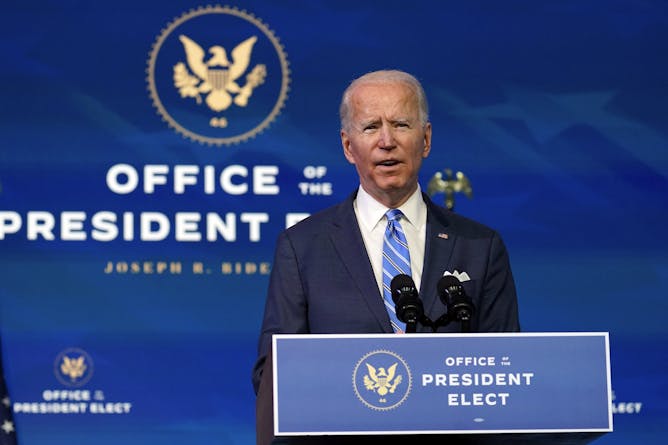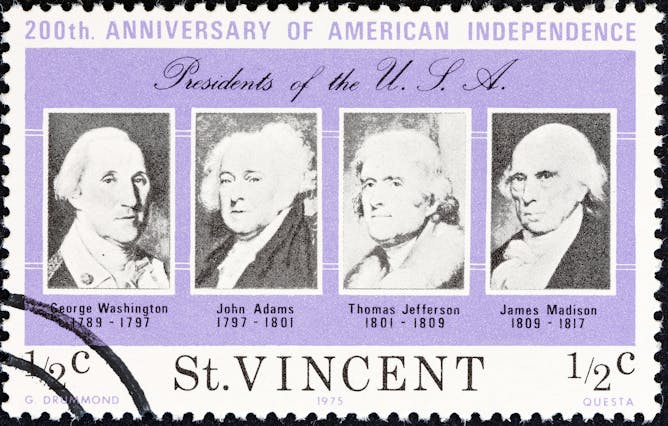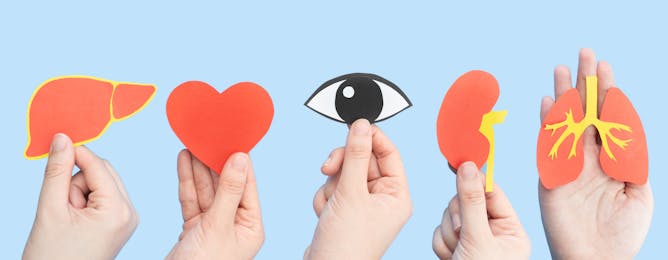|
After weeks of turmoil and violence south of the border after Donald Trump’s calculated refusal to accept the results of the Nov. 3 presidential election, Joe Biden will become the 46th president of the United States on Wednesday. He’ll be inaugurated in the midst of the type of security on Capitol Hill that hasn’t been seen since the 9/11 era.
Biden handily beat Trump in both the popular vote and the Electoral College. But the Electoral College is at the heart of why presidential elections can be so contentious in the U.S. Hillary Clinton, for example, lost the Electoral College in 2016 despite winning the popular vote — although her tens of millions of supporters didn't take up arms and raid the U.S. Capitol as a result. Nonetheless, as James Krapfl of McGill University points out today in The Conversation Canada, the debate about the Electoral College pits those who think the
president should be chosen via popular vote versus those who believe the interests of small and large states must be balanced.
Krapfl explains the history of Electoral College, and has a simple proposal for reform that involves allocating each state’s electors proportionally to the popular vote in that state. He writes: “The fairness would work both ways. Republicans in California and New York would get a voice, alongside Democrats in Iowa and Arkansas.” As Biden takes power this week, perhaps the time has arrived for a bipartisan effort to improve the Electoral College system.
Also today:
All the best,
|

President-elect Joe Biden speaks about the COVID-19 pandemic in Wilmington, Del., on Jan. 14, 2021.
(AP Photo/Matt Slocum)
James Krapfl, McGill University
The debate about the U.S. Electoral College pits those who think the president should be chosen via popular vote versus those who believe the interests of small and large states must be balanced.
|

A 1975 stamp printed in St. Vincent shows U.S. presidents George Washington, John Adams, Thomas Jefferson and James Madison, who were all vocally pro-inoculation and vaccination.
(Shutterstock)
J.M. Opal, McGill University
In the early years of the United States, several American presidents were in favour of public health inoculation and vaccination strategies.
|

An Amsterdam storefront shows the type of creative and colourful cannabis packaging seen in other jurisdictions.
Creative Commons
Michael J. Armstrong, Brock University
Health Canada should revise its cannabis regulations to let producers differentiate themselves from competitors and explain their products to consumers.
|

Deemed consent, or ‘opt-in,’ organ donation is a significant departure from the practices of health-care consent in Canada.
(Shutterstock)
Marika Warren, Dalhousie University
Deemed consent organ donation means that everyone is assumed to be an organ donor unless they opt out, but assuming consent raises some ethical issues.
|

La crise sanitaire et le confinement conduisent à des activités inhabituelles dans le cerveau, provoquant insomnie, manque de concentration ou agitation.
Shutterstock
Nancy Brassard, École nationale d'administration publique (ENAP)
Lorsqu’on gère un événement difficile, comme l’actuelle crise sanitaire, le courant électrique qui régit notre cerveau s’en trouve modifié. Des techniques permettent de mieux réguler notre humeur.
|
Politics
|
-
Anthony Fargo, Indiana University
Journalists say that if they are forced to turn over to law enforcement any news information they have gathered, it will erode the trust of sources and the public – and place them in danger.
|
|
Arts
|
-
Oskar Cox Jensen, University of East Anglia
After rioters outside the US Capitol sang Bob Marley’s 'Three Little Birds', here are more global instances when history has sounded a little out of tune.
|
|
Environment + Energy
|
-
Robert Wilby, Loughborough University
Climate models are likely underestimating the true severity of future warming in urban areas.
|
|
Science + Technology
|
-
Nathan Smith, University of Manchester
We can look to astronauts’ experiences for tips to improve our own situation during lockdown.
|
|